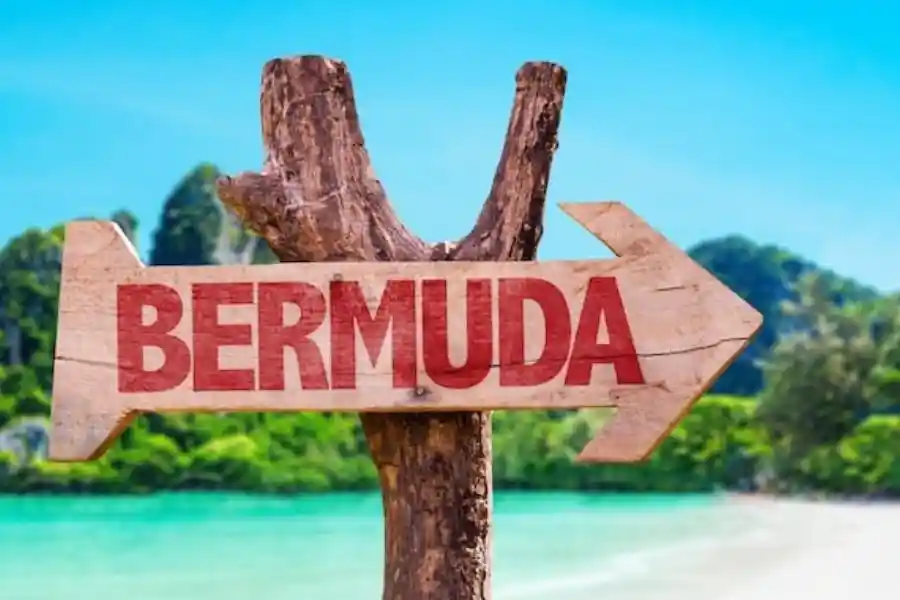This British island territory less than about 700 miles off the coast of North Carolina has held on to its British identity despite its closeness to the United States. That odd situation has many asking: Why didn’t the U.S. ever lay claim to Bermuda?
To understand this dynamic we need to look at Bermuda’s historical connection, its strategic position as an asset of global geopolitics, and what diplomatic necessities have maintained it as a British Overseas Territory.
Key Takeaways
- The U.S. refrained from claiming Bermuda due to strategic diplomatic relationships with Britain and complex historical ties.
- Bermuda’s role as a pivotal British naval base reinforced its importance to Britain.
- Economic, military, and geopolitical factors bolstered Bermuda’s continued British association, even amidst its proximity to the U.S.
Bermuda’s British Beginnings
Bermuda first became associated with Britain in 1609 when the British ship The Sea Venture was wrecked on its shores. By 1612, well over a century before the U.S. Declaration of Independence in 1776, Bermuda became an official British colony. Its mid-Atlantic location made it an essential base for Britain’s naval power.
The British reinforced Bermuda heavily, building the Royal Naval Dockyard in the early 1800s. As crucial to British naval superiority, this port guaranteed Bermuda’s role, from wartime to peacetime. These fortifications gave Bermuda the moniker “Gibraltar of the West.” Time did cement a certain British or English identity that was not easily displaced.
Did You Know? Bermuda was called the “Gibraltar of the West,” because of its strategic and heavily fortified naval bases.
The U.S. Independence and Its Territorial Ambitions
After independence, the United States pursued expansionist policies designed to expand its sway in the Western Hemisphere. But despite Bermuda’s proximity, the U.S. never prioritized claiming the island. Key reasons include:
- Continental Focus: The early U.S. expansion focused on acquiring continental territory, including the Louisiana Purchase and Florida.
- The Monroe Doctrine (1823): The Monroe Doctrine was more about stopping European countries from colonizing the Americas than it was about taking British territories that were already established, like Bermuda.
- Geopolitical Strategy: Annexing Bermuda would have meant taking on Britain, which the United States wanted to avoid as it focused on asserting its influence in Latin America.
| Strategic Priority Table | ||
| Period | U.S. Focused Territories | Bermuda Consideration Level |
| Early 1800s | Florida, Louisiana Purchase | Low |
| Mid-1800s | Mexican-American War Territories | Low |
| The late 1800s | Puerto Rico, Guam (Spanish-American War) | Moderate |
Bermuda as Britain’s Atlantic Stronghold
Bermuda served as a linchpin in Britain’s Atlantic defense strategy. Its naval base not only ensured British influence over the Atlantic but also acted as a counterbalance to U.S. expansion.
During the War of 1812, Bermuda’s British military installations were instrumental in supporting British forces against the U.S. Over time, Britain developed Bermuda into one of its most formidable Atlantic naval bases. Pursuing Bermuda would have required the U.S. to engage in direct conflict with Britain, a move it avoided in favor of expanding westward.
Key Quote: “Bermuda was the linchpin of Britain’s Atlantic strategy, but it also directly counterbalanced America.” – The Historical Context of British Naval Policy
Diplomatic Relationships: The Special U.S.-UK Relationship
To some extent, over the 19th and 20th centuries, the U.S. and Britain forged a “special relationship,” a bond that prioritized cooperation instead of competing for land. The mutual dependence was especially apparent in the World Wars when Bermuda’s strategic military bases were essential to Allied missions.
- WWII Purpose: Bermuda is noted for hosting more than 5,000 Allied vessels during WWII for shelter and repairs. The U.S. and UK cooperated under agreements such as the 1941 Destroyers for Bases Agreement, which permitted the U.S. to create military bases in Bermuda, without changing its status in the territory.
- Cold War Importance: The U.S. maintained its bases in Bermuda through the Cold War to surveil Soviet naval activity, enhancing Bermuda’s strategic importance without requiring territorial claims.
Fun Fact: U.S. military installations once covered roughly 5 percent of Bermuda’s land during the Cold War.
The Economic Role of Bermuda: A Financial and Trade Hub
Apart from its military significance, Bermuda’s economic role reinforced its British connection. Bermuda is a tax haven, which added to the island’s being a center for international finance, drawing international investors and businesses. This enabled Bermuda to become less of a financial burden on Britain and not as desirable a target for U.S. annexation.
For trade and investment, U.S.-Bermuda relations were mutually beneficial, enabling both nations to profit from one another without engaging in any territorial disputes or competing with one another in near-global theatre (except that they both are in the Western world).
A Self-Governing British Overseas Territory
Today Bermuda is a British Overseas Territory that governs much of itself. Bermudians are British citizens but have their own legal and economic systems. The island’s tourism and finance sectors remain robust, providing economic stability and autonomy.
The United States is still among Bermuda’s leading foreign partners, and Bermuda’s British governance and reliance ensures its value as an ally without any need for intervention from our side.
Conclusion
Why didn’t the U.S. capture Bermuda? The reasons are rooted in the complexities of historical ties, foreign policy priorities, and military strategy. Bermuda’s strategic function as a British bulwark, its thriving economy, and Washington’s collaborative relationship with London rendered annexation unnecessary. Instead, Bermuda is a singular reminder of the lasting connections between Britain and its former colony.
This is an analysis of historical alliances influencing global geopolitics. How might today’s collaborations reflect these historical dynamics? Discover these links, and others, in our blog, as we explore the past and its importance to today’s world orders.

